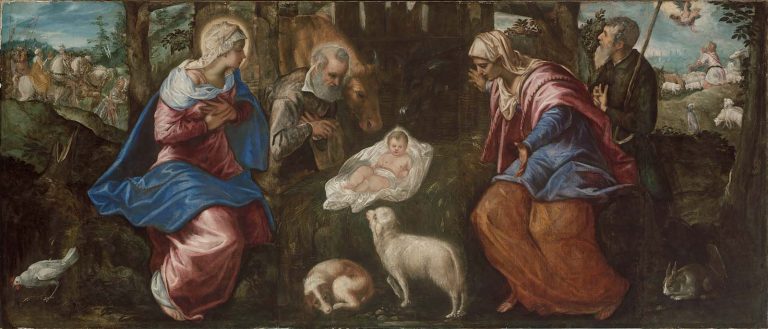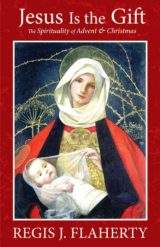By Regis Flaherty
Regis Flaherty is a bestselling author of several books, including Jesus Is the Gift: The Spirituality of Advent & Christmas, which is the fruit of over seven years of preparing others for Advent through talks on its liturgical themes.

Imagine the level of excitement in your home if you just learned that the president of the United States was coming for dinner in four weeks. You would want to shine the silver service, get out the best dishes, mow the lawn, and have your best suit cleaned. You would enthusiastically tell all your friends and family about the important guest. Preparing for that guest would change your life.
The term advent is based on a Latin word that describes the coming or visitation of the emperor. It is an ideal word to describe the first season of the Catholic Church’s liturgical year. This is the season that anticipates the coming of Christ the King. Just as if we were waiting for the president to arrive for dinner, we have much to accomplish before the anticipated day.
In a sense, the season of Advent actually celebrates and anticipates three comings of Christ. First is the historical coming of Christ that occurred about two thousand years ago. Advent recalls the long period of waiting and preparation of the Hebrew people for the coming of the Messiah before the arrival of Jesus on that first Christmas day. Reviewing this history gives Catholics an appreciation of the significance of the Incarnation (when God took on human nature and was born of Mary). To celebrate the birth of any individual is appropriate. To celebrate the birth of the God-Man who came to save all humankind is vital. The preparation for this celebration is a key focus of Advent.
Yet Jesus did not live for only thirty-three years and then disappear from the lives of His people. He still lives in the hearts and spirits of all baptized Christians. Therefore, the preparation and anticipation of Advent is an opportunity for a second, more personal coming of Christ—a chance to deepen the life of Christ in the individual. Catholics long to have the life of Christ renewed in their lives—just as the ancient Hebrews longed for the Messiah to come to them.
Two key figures appear in the readings of the Advent season and give us models of receptivity to Jesus. One is John the Baptist, the precursor of Christ, who proclaimed repentance to the Jews, encouraging them to prepare for the coming of the Messiah. John expressed a sentiment that should be a guiding principle for every Catholic: “He [Jesus] must increase, but I must decrease” (John 3:30).
The other Advent figure is Mary. When the Angel Gabriel appeared to Mary and announced that she was to be the Mother of the Savior, she responded: “let it be to me according to your word” (Luke 1:38). She accepted the Son of God into her life. Mary’s life typified obedience to the will of God and a spirit that was docile to God, joined to firmness in her willingness to endure hardship. Every Catholic can find inspiration in those character traits.
Mary and John the Baptist are our models and guides during Advent. Heeding the call of John the Baptist, we want to examine our lives, repent where needed and set things right in our hearts so that Jesus can find a home there. Essentially, this is a second kind of “coming of Christ” that we celebrate in Advent. Like Mary, we are encouraged to say “yes” to God—to allow Him to live in a more intimate way in our lives.
Yet another—a third—coming of Christ is celebrated in Advent. Jesus was born in Bethlehem two thousand years ago. He remains with us as the head of His Mystical Body, the Church, and in the heart of every Christian. In addition, as the Creed proclaims, Jesus will come again in glory at the end of time.
This coming will be the culmination of the redemptive plan of God. The final judgment and the establishment of “a new heaven and a new earth” will take place, when all will acknowledge the glory and power of God. Then all of the saved will dwell for eternity in true bliss with God.
Christians long for this fulfillment of the plan and promise of God. So Advent is a time to prepare, anticipate, and pray for that final coming of Jesus when “God will wipe away every tear” (Rev 7:17).
You Might Also Like

Jesus is the Gift: The Spirituality of Advent and Christmas explores the biblical characters that the Church presents in these liturgical seasons of grace. Author Regis Flaherty helps the reader to walk in their footsteps—to understand the themes of Advent and Christmas, to prepare for the coming of our Lord, and to embrace His plan for our lives. You’ll find inspiration, opportunity, and impetus to prayer and conversion. This is a great book to help all Catholics prepare for and enter into Advent.